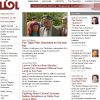
Around the Bloc: Buckwheat Panic Grips Russia, Czech Leader Urges ‘Finlandization’ of Ukraine
Plus, 'Western values' blamed for infertility in Kazakhstan, and a Russian journalist fights deportation from Poland.
More...We kindly inform you that, as long as the subject affiliation of our 300.000+ articles is in progress, you might get unsufficient or no results on your third level or second level search. In this case, please broaden your search criteria.

Plus, 'Western values' blamed for infertility in Kazakhstan, and a Russian journalist fights deportation from Poland.
More...
Plus, EU’s Albania justice mission faces corruption probe, and Orban tacks back toward Europe.
More...
The article is devoted to the place of the university in modern education and the role of Roman law in law education. The author emphasizes the absence of a textbook that presents the subject thoroughly and thoroughly. Among the main issues that the article highlights are the materialistic spirit of time and the lack of awareness on the part of lawyers about the importance of historical disciplines, among which the most important is Roman law.
More...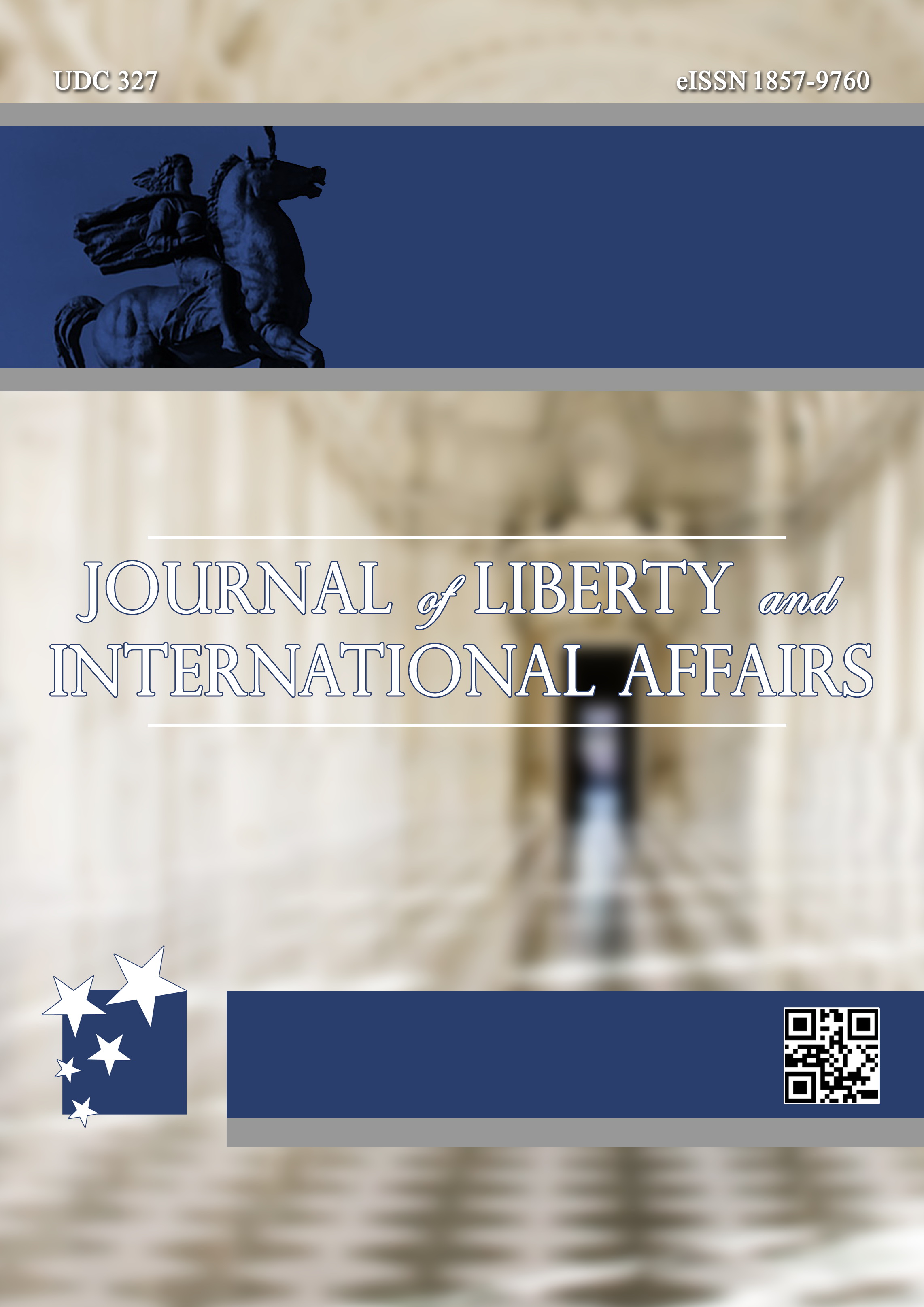
The research item of the paper is the term "judicial corruption". This particular term was ignored in the majority of countries of the Council of Europe. Judicial corruption as a term was first mentioned in the PACE documents- Resolution 1703 (2010) on judicial corruption. The author is trying to give answer to the question- Could there be a balance between establishing the responsibility of the judge and the independence guarantees? The term judicial corruption should not be manipulated with, i.e. the criminal cases of corruption where the judges and prosecutors are involved should be proved and led in line with all ECHR Article 6 fair trial requirements, and in compliance with the principle for presumption of innocence.
More...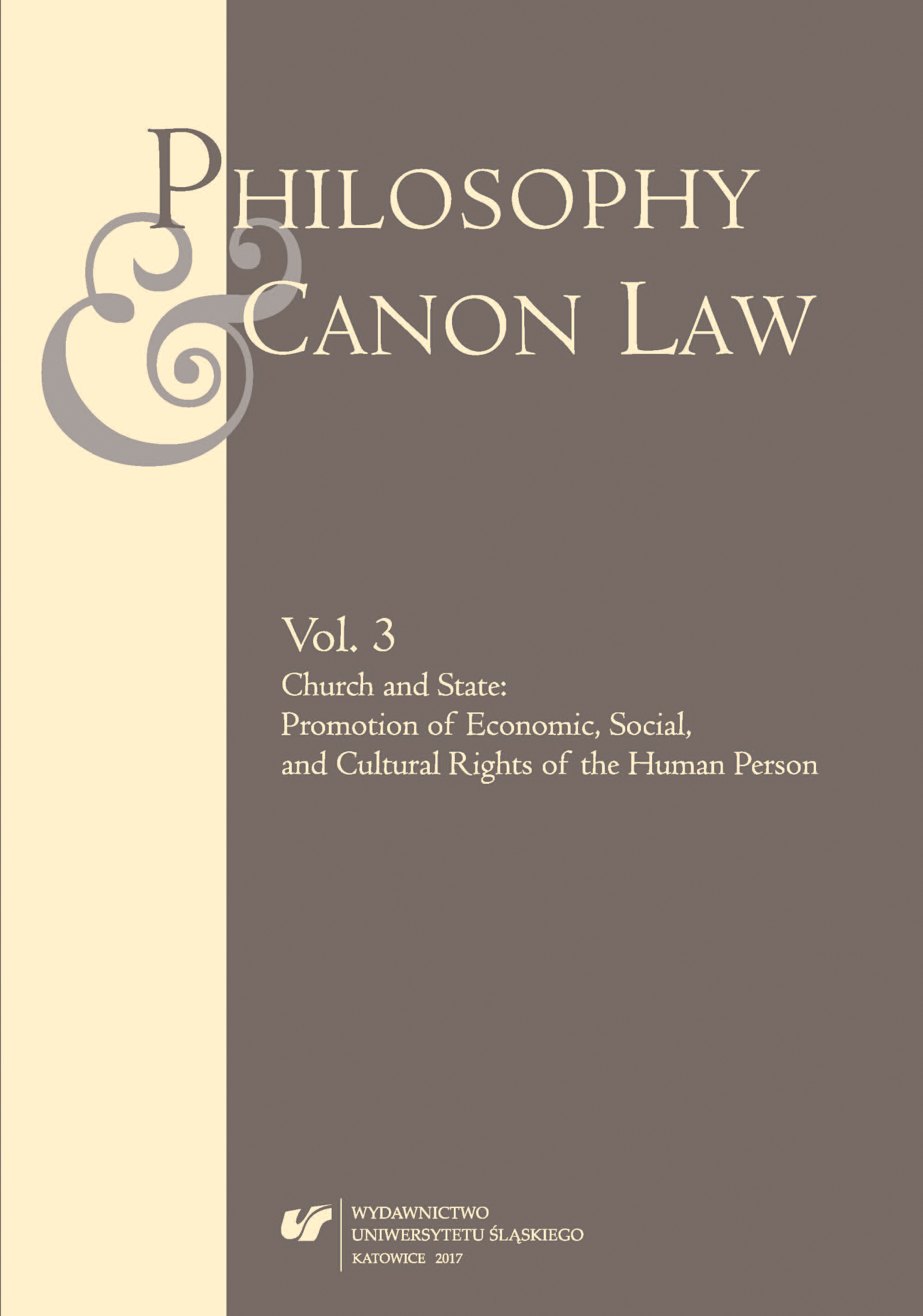
The paper deals with the concept of human rights in Catholic social teaching, especially regarding the trends of the so-called human rightism, viz. the ideological broadening and utilitarian relativizing of the concept of human rights in recent decades. It concludes that since the constant reference point of the Catholic moral perspective on human rights is still primarily the concept of natural law, it does not accept all the developmental trends in this sphere and consists in a certain fairly narrow understanding of human rights. The criticism of the inadequate progression and errors in the sphere of the further expansive development of human rights began especially in the era of the pontificate of John Paul II and is still being developed.
More...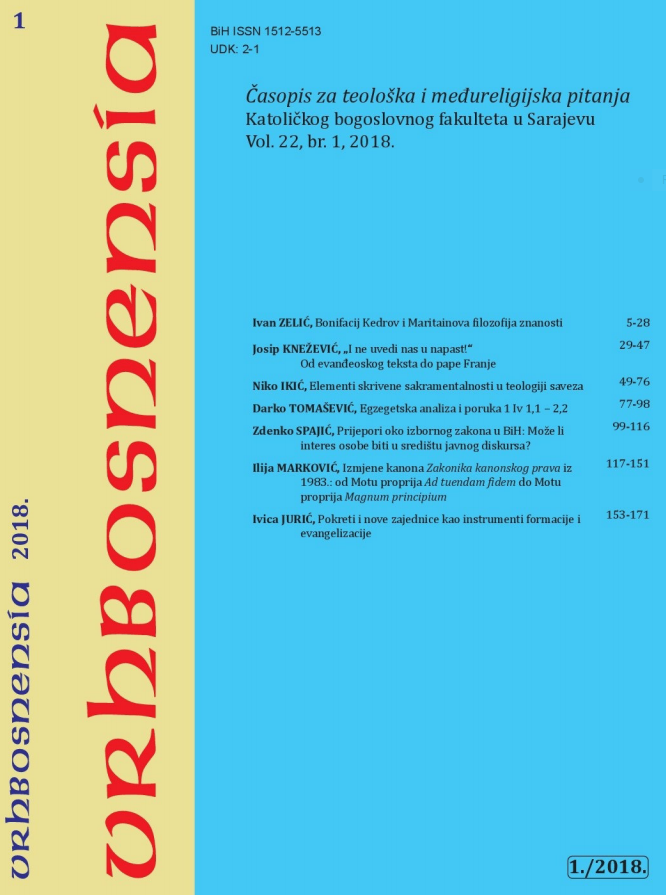
Oni koji su organizirali ovaj okrugli stol u ime IZ BiH, napisali su u smjernicama pozvanim predavačima da žele doprinijeti „ublažavanju napetosti između religija i sekularnih određenja stvarnosti, kao i napetosti između religija i unutar religija". Također su istaknuli kako u BiH „prisutnost religija u javnom prostoru ima veću težinu negoli u zemljama zapadne Europe. S druge strane, u BiH kao tradicionalnom multietničkom i multireligijskom društvu raspravljanje pitanja religije i sekularnosti implicira osjetljivost i odgovornost". Kao kršćanin i građanin ove zemlje svim srcem podupirem ovo nastojanje. U kratkom vremenu koje nam je dodijeljeno mogu iznijeti neke misli kršćanskih sociologa religije, pravnika i teologa provjerene na osobnom iskustvu s drukčijima koji nisu opasnost, nego ljudske skupine i pojedinci sa svojim pravima i potrebama. Pri tome pretpostavljam kao razmjerno jasan pojam javnog prostora u socijalnoj etici.
More...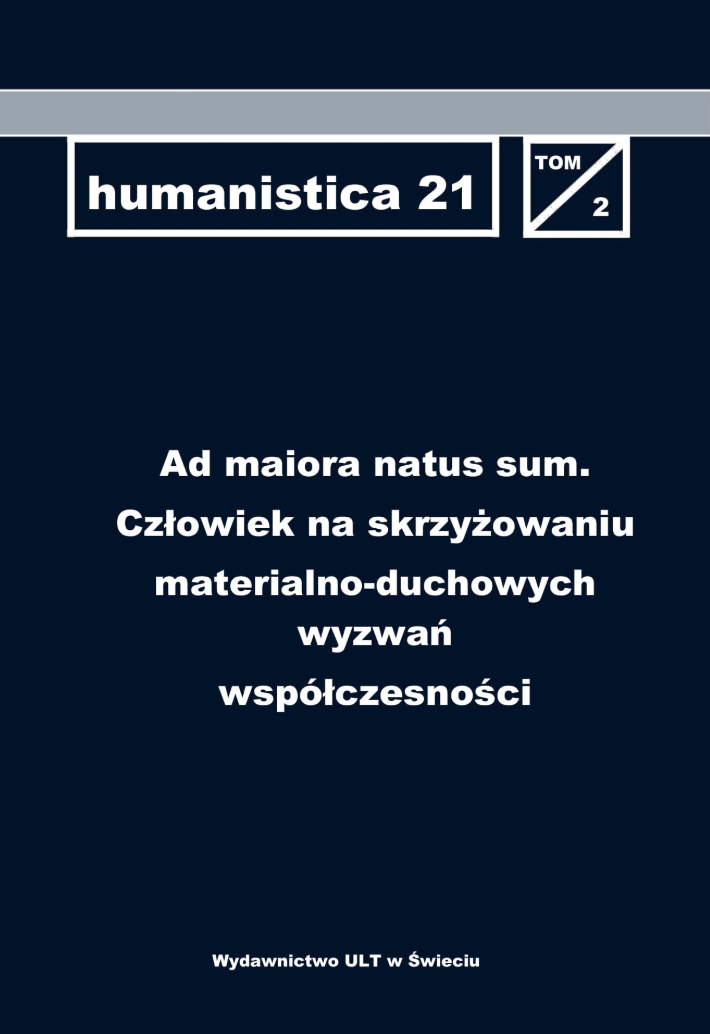
Death has accompanied man since time immemorial, as well as the problem of suicide, which is, in fact, the essence of death. From a formal point of view, every person has the right to self-annihilation, after all the answer to the question: "who will forbid me?" is, in each case "no one". In addition to the dispute, the fact remains that the individual has the actual freedom to decide on the time and place of departure. So, is a man entitled to suicide? The article is an attempt to present an interdisciplinary view on human right to self-destruction and is divided into two parts, although the author does not separate them with subtitles. The first is devoted to the presentation of views that may speak for the exist¬ence of the right of the individual to self-annihilation. The second focuses on presenting the reasons which, according to the author, may lead to the opposite conclusions. The article ends with a presentation of a short synthesis of the author’s own views on human right to terminate his life, however, being aware of the complexity of the issue analyzed, the issue of answering the question asked in the title has been leaft open.
More...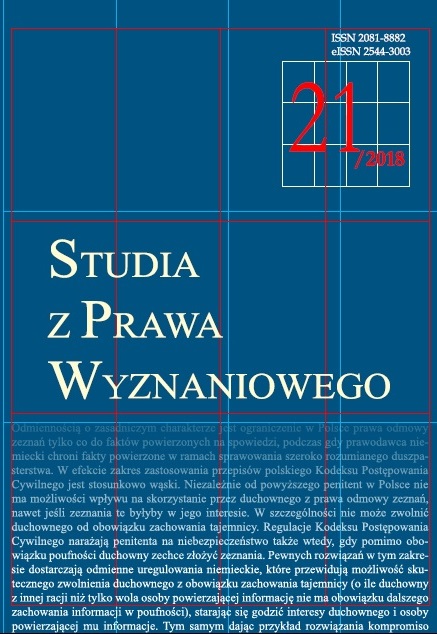
The aim of this article is to present the legal forms of establishing cooperation between medical facilities and chaplains with a view to guaranteeing patients’ right to pastoral care. The main research problem concerns defining the legal relationship between the chaplain and the medical facility in which he provides pastoral care. More specifically, the study aims to characterize the legal relationship between the chaplain and the medical facility taking into account the following types of employment: employment contracts, civil law contracts and voluntary work. The analysis is based on the dogmatic and, to a lesser extent, historical method. The results indicate that employment contracts are especially important in shaping the legal relationship between the chaplain and medical facility. The legal relationship between the chaplain and medical facility is general in character under Polish law owing to the fact that it is necessary to respect the institutional relations between the state and churches and other religious organizations. The specific duties of chaplains are defined by the law of their religious community, which, however, does not automatically apply in Polish law.
More...
The research goal is to reconstruct selected aspects of the legal position of the religious minister on the basis of the case law of the European Court of Human Rights. The analysis includes 33 judgments and decisions on the admissibility of complaints made by the bodies of the European Convention on Human Rights in 1976-2017. Based on them, it can be concluded that the ECtHR case law in this area is grounded in many years of practice.The religious minister as such has no guarantees other than those of any other person professing religious beliefs, but he benefits from the indirect strengthening of this protection by virtue of the guarantees of corporate freedom of conscience and religion. It is the autonomy of a religious organization that differentiates his position in both positive and negative respects. The autonomy of a religious organization is, in the light of ECtHR jurisprudence, an important component of pluralism in democratic societies, and it also includes determining the requirements for the religious minister. For this reason, the religious minister obtains strong protection against the interference of state power in matters relating to his appointment and removal from the office. The cost of obtaining this protection is a significant limitation of his personal freedom of conscience and religion, and indirectly also other rights while in the office of a priest, in relation to a religious organization. However, it should be remembered that the assessment of matters related to the performance of the office of a priest depends on the formal relations between a religious organization and the state. In the case of state churches, it is possible, for example, to submit certain church matters to state jurisprudence, and a religious organization can perform its self-limitation by shaping relations with the religious minister on the basis of a regular employment contract. As a rule, however, the ECtHR clearly indicated that matters concerning the religious minister lie outside the jurisdiction of the state and its organs. Nevertheless, the controversy surrounding the ruling in Károly Nagy v. Hungary indicates that the religious minister’s status may undergo some changes in the future.
More...
This paper examines the interrelationship between the State, freedom of association and sectarian violence among faith communities in Nigeria. It specifically discusses the role of the State in maintaining peace, and the government’s official response to sectarian violence among religious associations. In modern African states, sectarian violence has been prevalent and deadly among religious group movements. It is deployed as the most preferred means of attracting recognition, affirming feasibility and proclaiming existence among other religious associations in the State. This trend is associated with the Islamic Movement of Nigeria. It is against this background that this paper historicises sectarian violence, the myth and reality of religious freedom, the interrelationship between religious freedom, the State and secularism in Nigeria while discussing the constitutional provisions of religious freedom and religious associations in Nigeria. The paper concludes that religious freedom and freedom of association are integral features of the Nigerian Constitution and, therefore, all religious associations are permitted to live in peaceful coexistence.
More...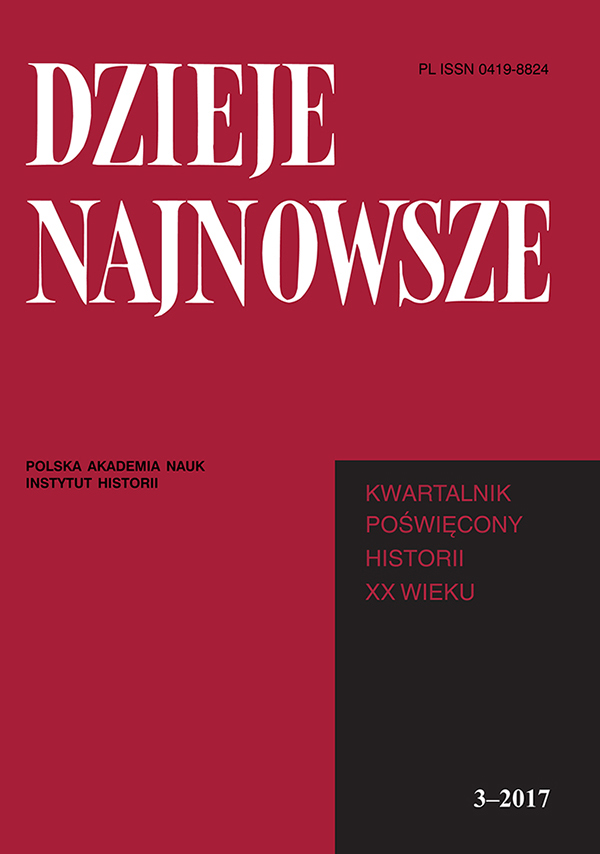
The article indicates the legal basis for qualification of the Katyn Massacre in the category of genocide. Polemicising with the arguments put forward by the Russian Federation which persistently negates the validity of regarding the massacre perpetrated under the order of the Politbiuro of the Bolshevik Party Central Committee issued on 5 March 1940 as a non-expiring crime against humanity.
More...
Sexual and gender-based violence against women and girls is not a new phenomenon, on the contrary, it was an important part in most, if not all, armed conflicts. Despite increased international attention to gender dimensions of conflict and authoritarian regimes, attention to the rights violations affecting women, especially those facing multiple forms of discrimination, have yet to be integrated into many transitional justice processes in practice. This article uses the case of Spain and the supplemental complaint submitted in Argentina by Women´ Link Worldwide to illustrate the importance of including a gender-perspective when dealing with the past. During the Spanish Dictatorship (1939-1975) serious violations of human rights were committed that have never been investigated in Spain. Among the crimes suffered by women during tthis period of time could be mention sexual abuses and rapes; gendered acts of torture (based on the insults directed to women, the electric shocks to genitals and attacks to motherhood); children stealing; forced abortions; forced-education and purges with castor oil and public humiliation. Those crimes constitute grave international crimes and, as such, they have to be investigated.
More...
Gendered violence within conflicts has occurred throughout human history and the Bosnian War (1992 – 1995) was no exception. The systematic use of war rape implemented by the ethnically Serbian soldiers was a tactic designed to torture, terrify, and traumatise Bosniak women and their communities. Following the end of the conflict, the international community responded strongly to the extensive use of sexual violence and the International Criminal Tribunal of the former Yugoslavia declared that the use of rape during conflict was a crime against humanity and that individual perpetrators of militant rape could be charged for committing gender-based war crimes in landmark cases like the joint trial of Dragoljub Kunarac, Radomir Kovac, and Zoran Vuković.
More...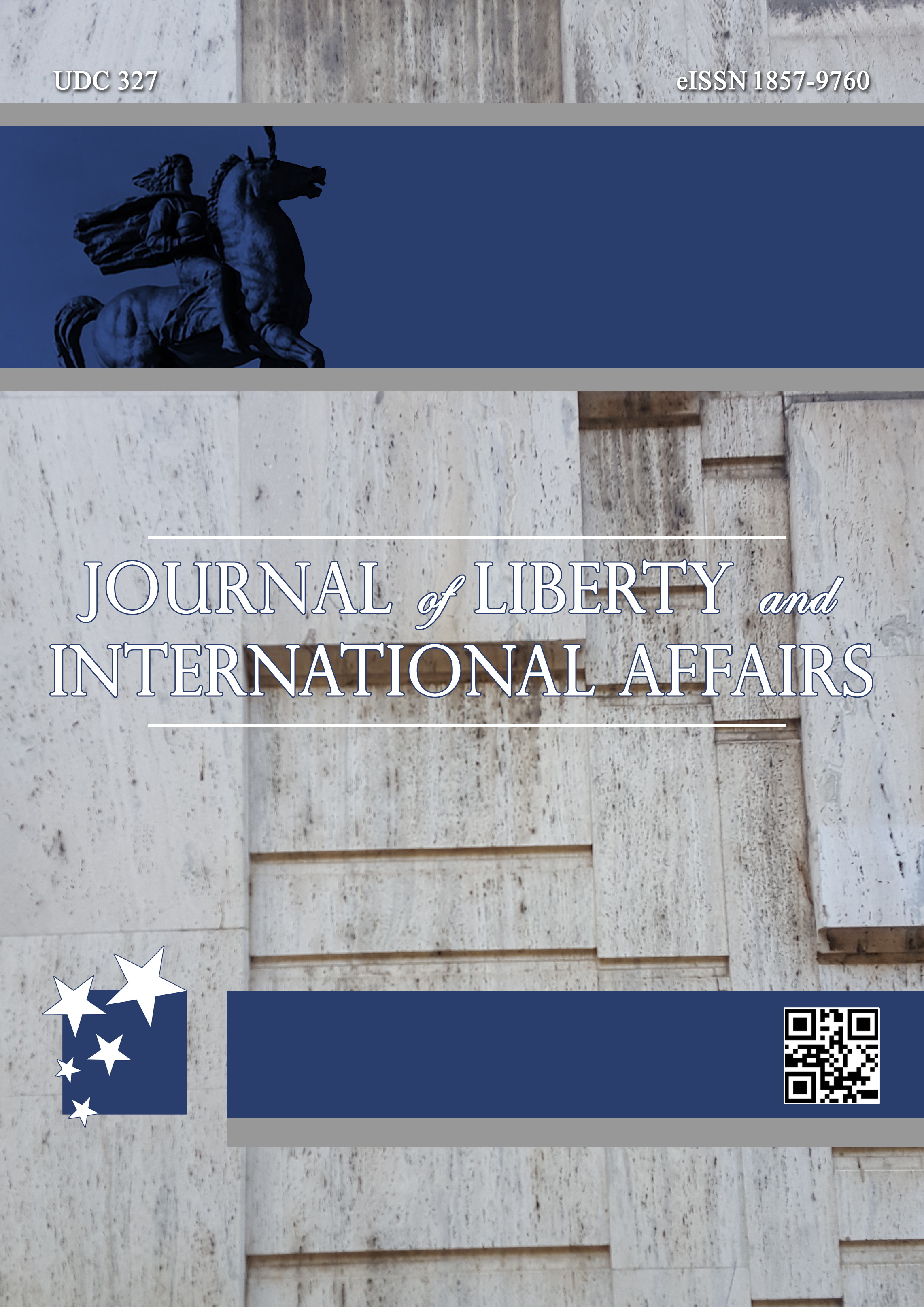
The aim of this paper is to analyse the independence, neutrality and impartiality of the EU humanitarian assistance and to which extent is influenced by the EU's political, economic and military goals. The paper focuses on the legislative framework and the interactions between the main actors of EU humanitarian aid and external action, questioning the politicization of EU humanitarian aid. The paper provides a detailed analysis of the structure and organization of the Directorate General for European Civil Protection and Humanitarian Aid Operations and its relations to the Member States, different EU bodies and humanitarian partners, primarily NGOs and UN bodies. The last part of the paper addresses the Comprehensive Approach and how it affects humanitarian aid.
More...
This paper elaborated clauses of corporate social responsibility as government policy and its implication to the international investment agreement. It is also explore the main sets of ideas and the theoretical framework that form the basis of CSR as introduced in article 15 of Investment Law. The analysis exposes the role of social responsibility and environment management as an obligation in protecting the interest of the states; investors; peoples and comparing it with the Prohibition of Performance Requirement (PPR) as mostly introduced in international investment agreement, particularly in investment chapter under FTA.
More...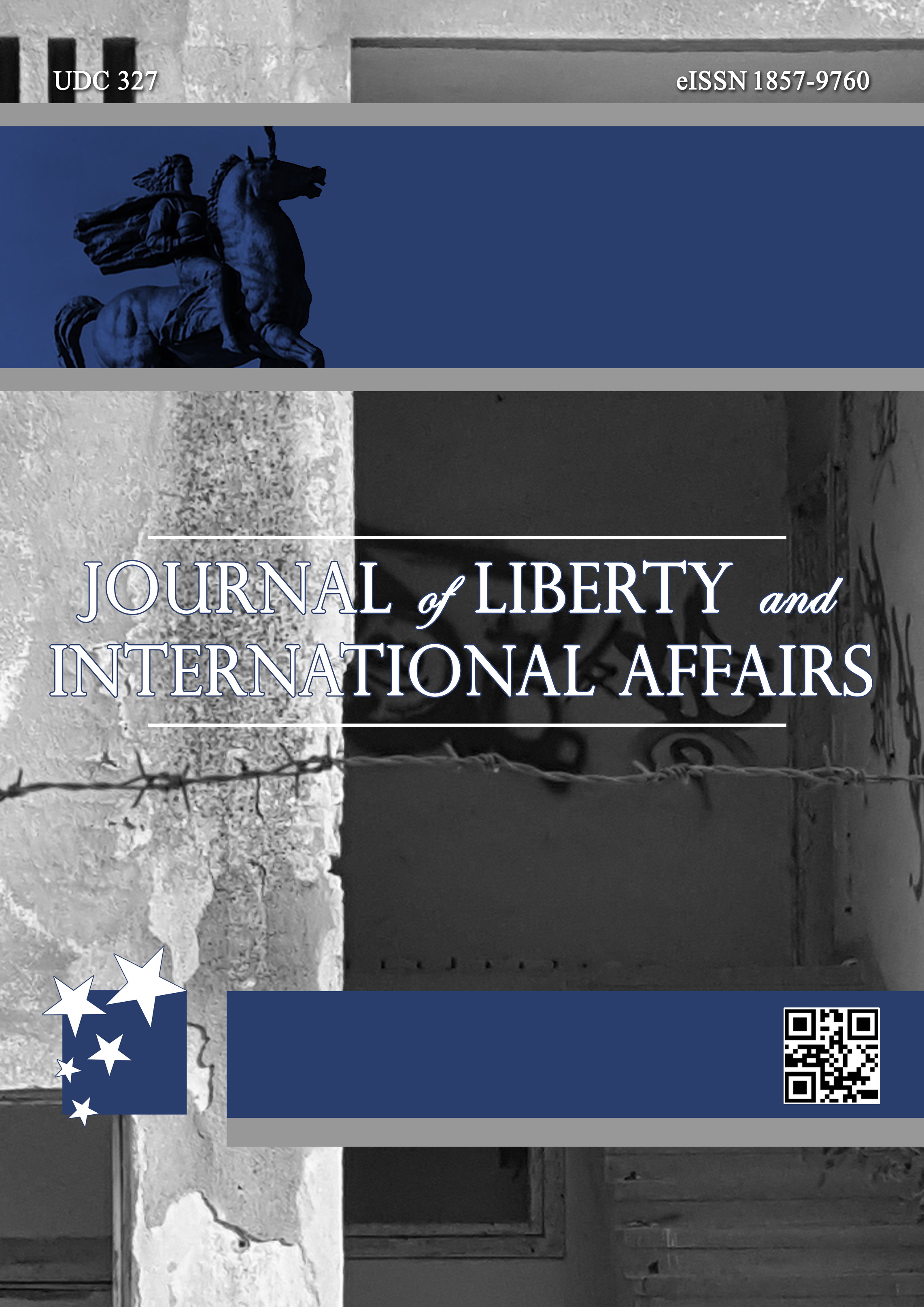
The aim of this research is to show how the reconstruction of the existing Ombudsman of the Republic of Indonesa influences the promotion of a responsive legal culture in the bureaucracy system. The research methods are normative and empirical, along with the philosophical approach, statute approach, conceptual approach, and direct interview in the field. Concluding the reconstruction of the Ombudsman of the Republic Indonesia to be more ideal through the review of the Law Number 37 from 2008 regarding the Ombudsman of the Republic of Indonesia including the relation to its institutional authority, and the legal force of the Ombudsman’s recommendations that should be final and binding, so the recommendations have an executorial power.
More...
STRENGTHENING THE POSITION AND FUNCTION OF THE JUDICIAL COMMISSION IN THE CONSTITUTIONAL SYSTEM OF THE REPUBLIC OF INDONESIA
More...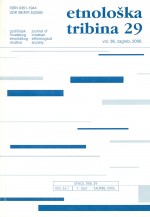
Review of: Rethinking Childhood, ed. Peter B. Pufall and Richard P. Unsworth, Rutgers University Press, New Brunswick, New Jersey and London 2004., 292 pp.; by: Jelena Marković
More...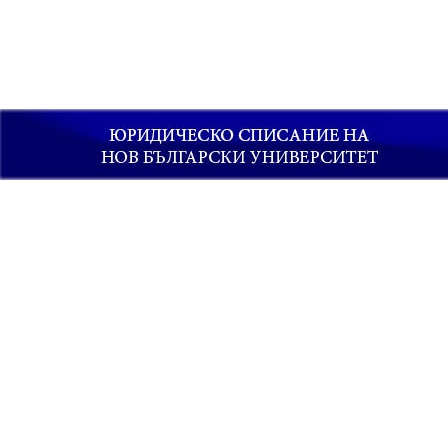
The European single market is the core of the European Union today. With the introduction of the four freedoms, within the European single market, people, goods, services and capital move around as freely as they do within one country. It would appear that the Union has a strong economic vocation. On the other hand, the EU established itself as a political union with social paragraph, in which the role of protection of fundamental rights is also essential. The protection of workers is part of these fundamental rights. The right to take collective union action, as the strike is seen as the exercise of a fundamental right. Therefore, a conflict seems to arise between, on the one hand, the structure of the European single market, and, on the other, the protection of fundamental rights, such as the protection of workers. Resolving this conflict would prove difficult, both in terms of finding a practical workable solution and a possible legal reconciliation. The rulings in the cases Viking2, Laval3, Rüffert4 and Luxembourg5 are an example of the difficulty of reconciling the protection of rights of workers, namely the right to strike and unions with the EU freedoms such as the freedom of movement. The future jurisprudence of the Court would prove to suffer from the same gaps as Viking and Laval cases, the question remaining if an equivalent protection is possible.
More...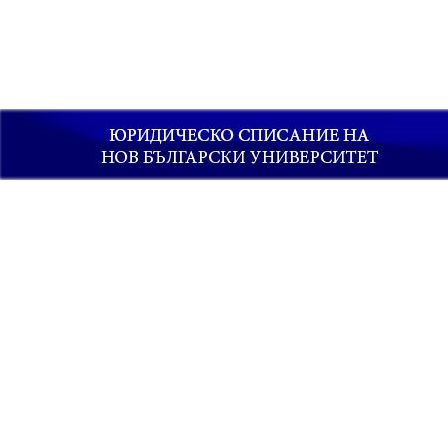
The 1879 Tarnovo Constitution of Bulgaria has been declared to be one of the most democratic world constitutions at that period, because of the rights and freedoms which it provided to Bulgarian citizens, in particular their voting rights and freedoms. The issue of interest under discussion in the paper is whether this Constitution could ensure in practice voting rights for Bulgarians, or these were of purely declaratory nature.
More...